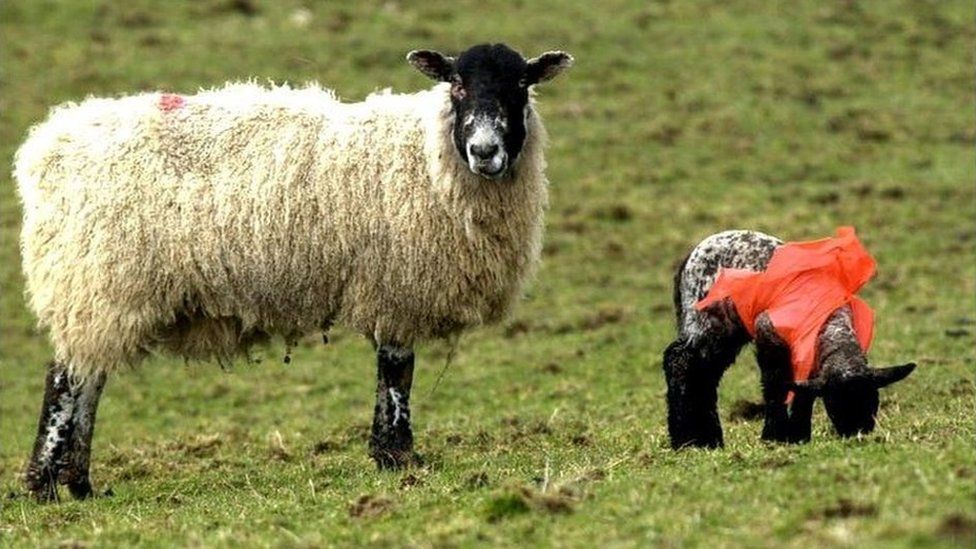
image copyrightPA Media
The UK government has indicated farmers may have to prepare for the lowering of tariffs on agricultural imports.
The Department for International Trade (DIT) would not be drawn directly on reports that it is willing to concede to zero tariffs and zero quotas on imports in a trade deal with Australia.
But it said a deal would be “an important stepping stone” to joining the Trans-Pacific Partnership.
Membership of this free trade group would open up other markets, it added.
It would “allow UK farmers even greater access to growing consumer markets in Asia”, the DIT said.
Secretary of State Liz Truss is aiming to sign this deal in June, as a precursor to launching a formal membership bid for the partnership.
But the NFU farmers union has urged the government to “stand up for farmers”, warning that lowering tariffs would make it harder to compete.
The DIT pointed out that “Australian lamb is estimated to be 25% more expensive than UK lamb”.
It added that Australia is not even using all of its current tariff-free quota allocation in the UK under current World Trade Organisation trade terms – meaning it could export more lamb tariff-free but chooses not to.
The DIT maintains that the government would “never compromise on our high environmental protection, animal welfare and food standards”.
A free trade deal with Australia would benefit the UK only marginally overall, by up to 0.02% of GDP in 15 years, according to estimates.
Trade economists say the proportion of farmers that would be disadvantaged by tariff and quota-free trade is actually likely to be quite small.
But the worry is this sets the tone for what the UK is willing to compromise on in other negotiations down the road, and could impact the longer-term prospects for farming.
Sources are not denying to the BBC reports in the Financial Times of a Cabinet rift over the impact on British agriculture of a trade deal with Australia.
However, it is not clear how closely the Cabinet will be involved in the ratification of the Australia trade deal, which Ms Truss wants to complete before the G7 summit in June.
A DIT spokesperson said the department would not comment on media reports, but added: “Any deal we sign with Australia will include protections for the agriculture industry and will not undercut UK farmers or compromise our high standards.
“We will continue to work with the industry, keeping them involved throughout the process and helping it capture the full benefits of trade.”
Emily Thornberry, Labour’s shadow international trade secretary, said: “If Liz Truss cannot negotiate a trade deal with Australia on the terms she herself proposed last year, the fault lies squarely at her door.
“So instead of blaming her Cabinet colleagues or the National Farmers Union for these difficulties, she should get on with her job, and deliver the deal that she promised.
“It’s perfectly normal that the Australian government should try to get the best possible deal for its agricultural mega-corporations. But British family farmers have a right to expect that Liz Truss will do the same for them, not sell out their livelihoods for the price of a quick trade deal, and a cheap headline at the G7 summit.”


